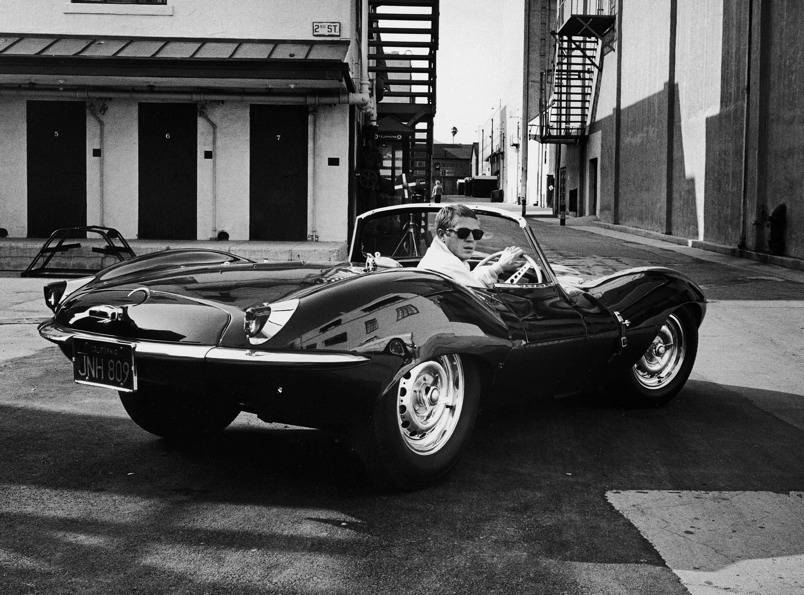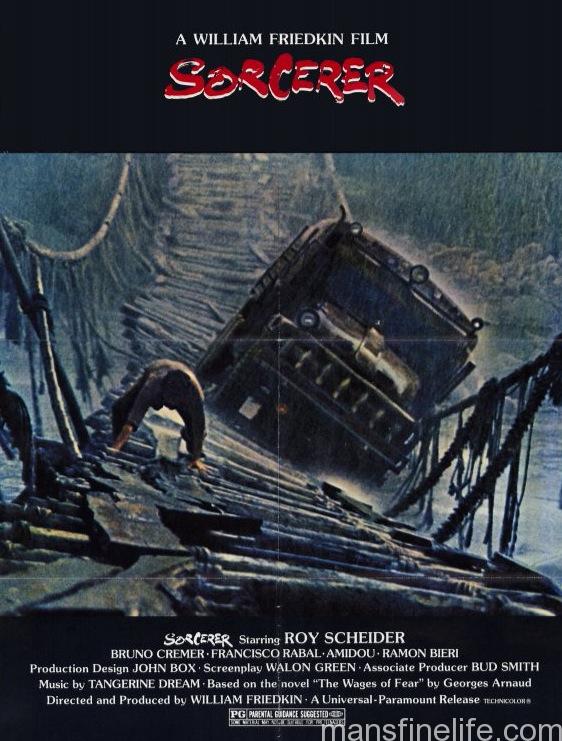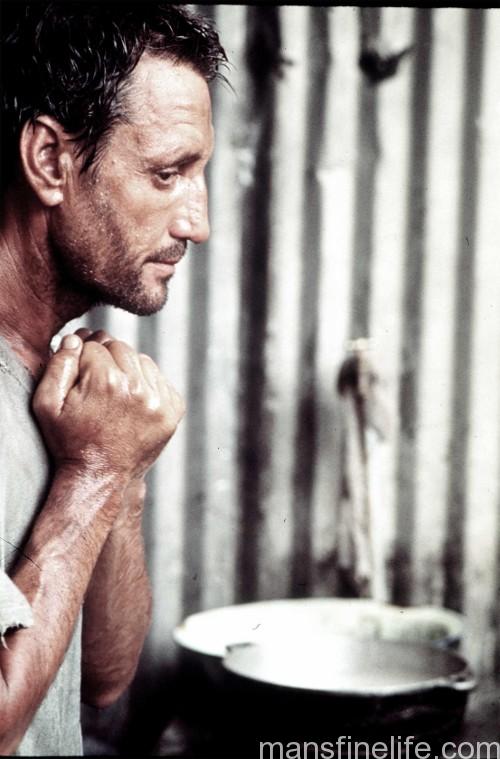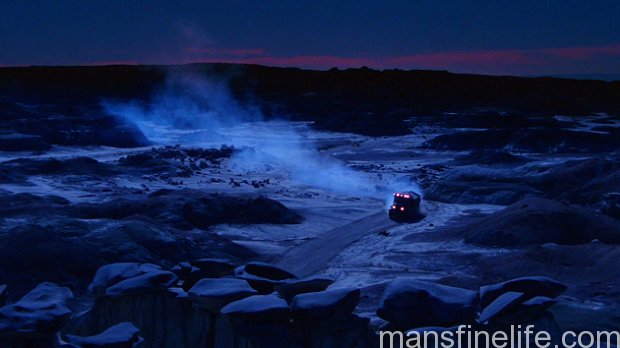For years, decades even, William Friedkin’s 1977 existential thriller Sorcerer was more infamous legend than actual cinematic experience, a sort of ghost story used to scare overly ambitious directors. And this was for the simple reason that almost no one had ever seen it. Coming off the double-barreled successes of The French Connection and The Exorcist, Friedkin chose to follow that incredible duo up with a re-imagined remake of Henri-Georges Clouzot’s excruciatingly intense and fatalistic Wages of Fear. But instead of continuing his winning ways at the box office the film very nearly ruined Friedkin’s career. To be honest, as a “force” he was never quite the same having spent all his accumulated juice to make this flawed but compellingly nihilistic epic. And so it became one of the famous “disasters” used by Hollywood studios to claw back the power that they had ceded to the creative types during the brief but fruitful “Auteur” period of the late 60s and 70s, the beginning of the end of letting the inmates run the asylum and a sort of bookend to 1980’s Heaven’s Gate.
Sorcerer was a quixotic, almost resolutely anti-commercial endeavor pushed by a hot director, went predictably well over budget and then was relegated to near total obscurity by the seriously bad timing of its release against a movie that completely changed the Hollywood paradigm: Star Wars. As Friedkin has aptly put it, when Lucas’ sci-fi epic erupted in 1977 it was a vacuum cleaner that sucked audiences from nearly all competing movies leaving very little oxygen for more challenging works. So Sorcerer never had a chance and literally lost something like $10 million dollars, which used to be a lot of money. To make matters worse the inherent risks in the production led to two studios co-producing the film so that in future years, when Sorcerer might have been re-released into the lucrative home theater market first on VHS and then DVD, no one had the legal authority to do so until Friedkin sued to recapture those rights. That finally enabled Warner Brothers to assume control of video distribution so Friedkin could remaster and reassemble his lost classic for DVD and Blue Ray. And that is a great thing for cinephiles in general and especially for those of us preoccupied with 1970s films.
Because while Sorcerer may not be the greatest film ever made, it is certainly a damn site better than most of what passes for cinema today and absolutely holds its own in terms of intensity with Friedkin’s two more commercially successful predecessors. Expanding on HG Clouzot’s superb original, Friedkin devotes the beginning third of the movie to the backgrounds of the four outcasts who will come together to haul nitro-leaking dynamite in jerry-rigged trucks over treacherous Central American roads to an oil well that is burning out of control. So we see an assassin (a hard-to-understand Francisco Rabal) execute a victim in Vera Cruz; a Palestinian bomber (Amidou) flee Israel after his terrorist team destroys a crowded bus in Jerusalem; a Parisian banker (the excellent and Gallically soulful Bruno Cremer) who has mishandled funds and is running out of options to avoid prosecution; and a getaway driver (the late, great Roy Scheider at the top of his game) whose gang’s big heist of a local, mob-protected rectory goes dreadfully wrong. And that’s how these morally compromised characters wind up in the filthy oil company town of Porvenir in some unnamed banana republic. Living in sweaty poverty and earning peanuts, the four separately stew in their foreign purgatory while desperately seeking a return to “civilization”.
But when a wellhead erupts miles away and burns out of control, the company seeks drivers to haul dangerously unstable dynamite to the scene of the inferno. The quartet of the damned leaps at the chance to try and escape their purgatory. But before they can get their ticket to freedom they must first travel through hell. With their heavy duty but cobbled together trucks carrying sand-cushioned boxes of nitro-sweating dynamite through dangerously narrow mountain roads, muddy rain forest with swollen rivers traversed only by precarious rope bridges and finally a barren, cold moonscape on the final approach, the journey is surreal and filled with non-stop tension. For the four men, death is literally around every corner.
If nothing else, this is the lost work that further bolsters Scheider’s already excellent bona fides as one of the very best and most unique actors of the 70s (see Jaws, Marathon Man and The Seven-Ups for proof of that). With all the actors doing a rather fearful amount of their own driving and stunts, Scheider and the others seem to turn themselves inside out and all really do look worse for the wear by the end of the film. Adding to the oppressive tropical atmosphere is a disturbing, almost violently insistent score by synth stalwarts Tangerine Dream that in retrospect really puts the film’s feeling of claustrophobic entrapment in an existential crisis over the top. Now that Sorcerer is finally available and in such a beautiful print, you really owe it to yourself to see it. Friedkin unequivocally says it’s his favorite film despite the superior reception of French Connection and Exorcist. And for its uncompromising depiction of life, grudging collaboration and survival at the very limit, one can see how the legendary director might feel Sorcerer is his most fully realized picture.





